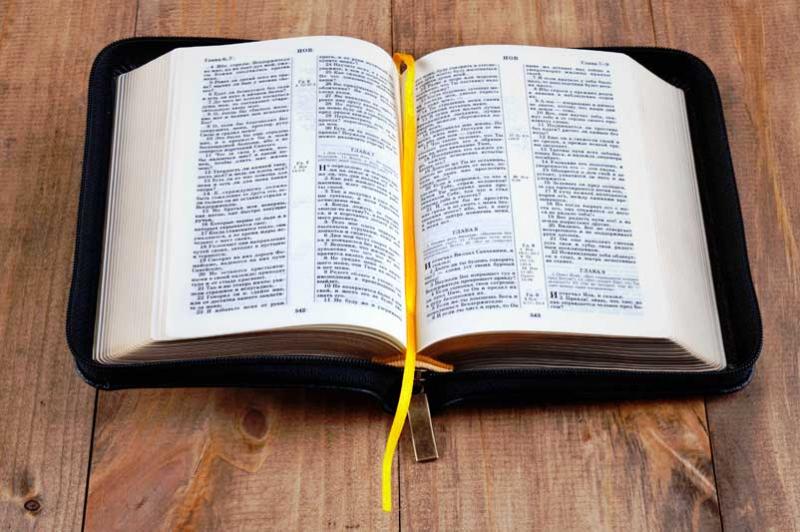
“Jews don’t believe in the Trinity. We believe in one God, not three.”
Answer: “Just as Messianic Jews probably misunderstand some of the things you believe, I think you misunderstand some of the things I believe. We do not in any way believe in three gods. My God is one, and his name is the LORD (or, Yahweh, known to Orthodox Jews as HaShem). He revealed himself to us through his Son, the Messiah, who is the very image and reflection of God. And he touches us and speaks to us by his Spirit. These are deep, spiritual truths. Later theologians labeled this relationship the Trinity God as a triune One. But the word ‘Trinity’ is not found anywhere in the New Testament and it may confuse the issues for you.” (See Answering Jewish Objections to Jesus, vol. 2, pp. 3-14.)
“If you claim that Jesus is God then you are guilty of making God into a man. You are an idol worshiper!”
Answer: “We believe that the eternally preexistent Son of God, through whom the universe was made, came forth from God his Father and was clothed with human flesh, making himself known to us as Yeshua the Messiah. He lived on this earth, died, rose from the dead, and returned to his Father. He now sits enthroned in heaven next to God. We understand that Jesus, the Son of God, is the very image of God, the one in whom God caused his fullness to dwell, the one through whom he revealed himself completely to mankind. Since the Son came forth from the Father and shares his divine nature, in one sense it is quite correct to say that Jesus is God (or, divine, or deity), always bearing in mind that the overwhelming testimony of the New Testament writings is that Jesus is the Son of God. I can show you from the Hebrew Scriptures that there is absolutely nothing idolatrous about what I believe. God has always revealed himself to his people. He did it most permanently and most fully through Jesus his Son.” (See Answering Jewish Objections to Jesus, vol. 2, pp. 14-37.)
“God doesn’t have a son.”
Answer: “It all depends on what you mean by the word son. In the Hebrew Bible, Israel was called God’s son, the king was called God’s son, and the angels were called God’s sons. Is it any wonder that the Messiah, the ideal representative of Israel, the king of all earthly kings, and the one more highly exalted than the angels, should be called God’s Son? More than anyone else who has walked this earth, Jesus the Messiah is uniquely entitled to be called the Son of God.” (See Answering Jewish Objections to Jesus, vol. 2, pp. 38-48.)
“According to the Law (Deuteronomy 13), Jesus was a false prophet because he taught us to follow other gods (namely, the Trinity, including the god Jesus), gods our fathers have never known or worshiped. This makes all his miracles utterly meaningless.” Answer: “Have you ever read what Jesus and his followers taught? They emphasized, ‘Love the LORD your God with all your heart, mind, soul, and strength. Follow him. Obey him!’ Jesus pointed everyone to God his Heavenly Father by his miracles, by his message, and by his life. He lived, died, and rose again for the glory of his Father. Thus Jesus was a faithful and true prophet.” (See Answering Jewish Objections to Jesus, vol. 2, pp. 48-52.)
“The Holy Spirit is not the so-called third person of the Trinity.”
Answer: “Rather than discuss the Trinity again (see 3.1, above), let’s focus on one question: Is the Holy Spirit only a ‘what’ or are there dimensions in which the Spirit is a ‘who’? From the Scriptures, it can be demonstrated that God’s Spirit is more than just an abstract power. The Holy Spirit is part of God’s very essence and clearly has personality. The New Testament simply expands on these established, biblical truths, which, interestingly enough, are treated in a similar way in some later Rabbinic traditions.” (See Answering Jewish Objections to Jesus, vol. 2, pp. 52-59.)
Get the "A Rabbi Looks at Jesus of Nazareth" Book
With warmth and transparency, Jewish Voice’s own Messianic Rabbi Jonathan Bernis shares a compelling case for Jesus as Messiah and presents overwhelming evidence that can be traced to the Torah itself.
“According to Isaiah 43:11, God alone is our Savior. We don’t need or recognize any other saviors.”
Answer: “Isaiah 43:11 is written with reference to other ‘gods’ and it teaches emphatically that the Jewish people will not be saved by any other so-called god or deliverer. This is clear. It is also clear that God saves through whom he wills to save whether it be earthly deliverers (such as kings or warriors), angelic messengers, or the Messiah.” (See Answering Jewish Objections to Jesus, vol. 2, pp. 59-60.)
“We are righteous by what we do, not by what we believe. Christianity is the religion of the creed, Judaism the religion of the deed.”
Answer: “The New Testament clearly teaches that faith without works is dead. But it also teaches that without faith, there can be no meaningful works, and the first thing God wants from us is our total trust and dependence. That is called faith, and it is foundational to the Hebrew Scriptures as well. Our forefathers died in the wilderness because of their unbelief, and being pronounced righteous by God begins with absolute faith in him. So, right living is the result of right believing. As a Jew, you should also remember that ‘the creed’ is important in traditional Judaism too.” (See Answering Jewish Objections to Jesus, vol. 2, pp. 60-69.)
“The Scriptures clearly tells us that, ‘To do what is right and just is more acceptable to the LORD than sacrifice’ (Prov. 21:3).”
Answer: “Amen! Who would argue with Scripture? Elsewhere the Bible teaches that obedience is better than sacrifice (1 Sam. 15:23). But these passages do not denigrate the importance of sacrifices, as some anti-missionaries would claim. Rather, throughout the Bible God opposes religious hypocrisy and formal, outward observance of religious rites. He would rather have our simple obedience than our lengthy prayers or costly sacrifices if our hearts are not right with him. And he would prefer that we just do what he says rather than that we sin, repent, and bring a sacrifice for our sins. The sad fact is that we all sin grievously and we all need atonement for our sins, a subject that Scripture clearly affirms and teaches.” (See Answering Jewish Objections to Jesus, vol. 2, pp. 69-71.)
“The prophets indicated clearly that God did not care for blood sacrifices. In fact, they practically repudiated the entire sacrificial system, teaching that repentance and prayer were sufficient. The Talmudic rabbis simply affirmed this biblical truth.”
Answer: “Some later rabbis may have taught this, but the prophets certainly did not. Everything the prophets did, they did out of allegiance to the Torah and to reinforce what was written there. There is no possible way that they would have repudiated the God-given, God-ordained, God-sanctioned system of atonement as laid out in the Torah especially with the Temple standing. The prophets would not have contradicted Moses. What the prophets repudiated was hypocritical religion. In other words, they rejected the performance of sacred rites and the keeping of special days when those practicing them had polluted hearts. They were perfectly clear on this. It’s also interesting to note that every traditional Jew around the world prays daily for the restoration of the Temple and the sacrificial system. If sacrifices were really unnecessary and unimportant, and if the prophets utterly repudiated them, why pray daily for their restoration?” (See Answering Jewish Objections to Jesus, vol. 2, pp. 72-103.)
“Even if I accept your premise that blood sacrifices are of great importance in the Torah, the fact is that our Hebrew Bible including the Torah itself offer other means of atonement, not just the shedding of blood."
Answer: “There can be no question that blood atonement is the central and most important form of atonement in the Bible. The blood is essential, foundational, and irreplaceable. Because blood sacrifices form the heart and soul of the biblical system of atonement, both the New Testament and numerous authoritative Rabbinic traditions state that without shedding of blood, there is no atonement. Take away the blood, and the whole biblical system of atonement collapses.” (See Answering Jewish Objections to Jesus, vol. 2, pp. 103-123.)
This material is reprinted with permission. Adapted from Dr. Michael L. Brown’s book series Answering Jewish Objections to Jesus.





